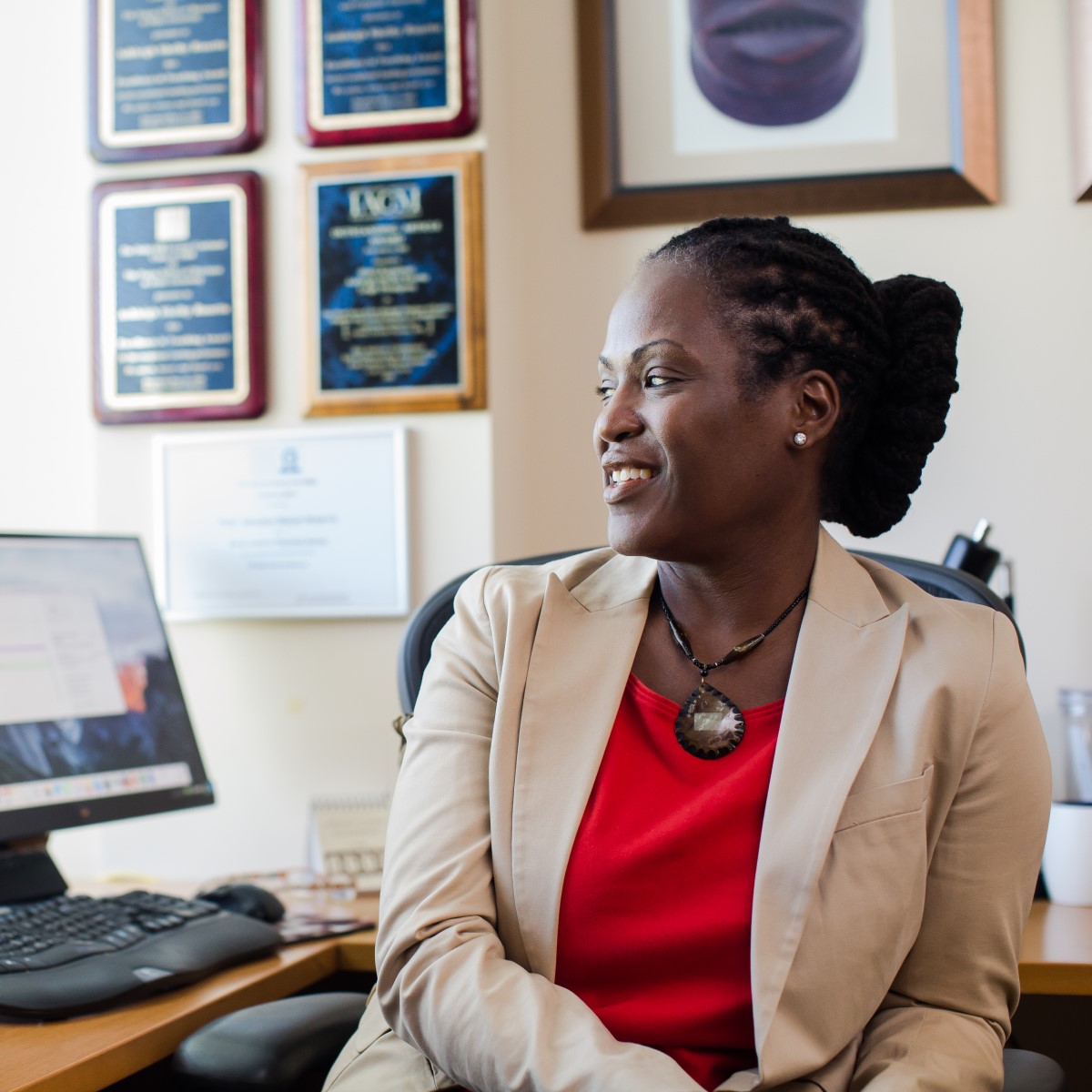For years, Professor Ashleigh Shelby Rosette watched the same issues bubble up when she addressed incoming MBA students on diversity in leadership, and worked with the Duke MBA Association of Women in Business.
“There were so many one-off conversations that would happen,” Rosette said, “but students didn’t realize at first that so many of their fellow classmates were having comparable experiences related to their gender identity. So they were receptive when I would point out the various theoretical or empirical research behind the phenomena they were describing.”
Students would describe feelings of inferiority, and Rosette could tell them they were experiencing imposter syndrome. They’d describe an instance of workplace discrimination, and Rosette was able to explain it as agentic bias.
“Her research was objective and demonstrated to our classmates that this is really happening, this is not just something that women are making up,” said Lauren Vick, who was co-president of the Duke MBA Association of Women in Business for 2017-18, during her second year in the Daytime MBA course at Duke’s Fuqua School of Business
Vick and her colleagues in AWIB formed a gender equity working group to pull together the disparate threads of conversation prompted by the #MeToo movement as a way of bringing issues to the attention of school administrators.
“Professor Rosette was instrumental in helping us navigate some of those challenges, because a lot of the students saw her as a person to go to when thinking about gender after she presented her research,” Vick said. “She was so helpful in guiding and shaping those conversations.”
“My goal was very simple"
These experiences were part of what prompted Rosette to create the new Women in Leadership course for Daytime MBA students at Fuqua.
“My goal was very simple,” she said. “People are already talking about these issues; I want to provide a forum that includes the substance behind the things people are experiencing.”
Rosette aims to give students an understanding of why diversity in leadership matters. The course will examine the obstacles facing women who aspire to lead, and the strategies successful women leaders have used to overcome them.
“I want to help students to better comprehend – and, most importantly, navigate – the barriers and obstacles that women – and men – sometimes face when they seek and occupy leadership roles,” she said. “That takes an understanding of the social, psychological and structural underpinnings that can give rise to disparate treatment, unfavorable and favorable.”
The course provides that understanding, Rosette said, through the analysis of gender stereotypes, bias, and discrimination – “implicit, subtle, explicit, blatant, or otherwise” – that can persist in organizations.
The class will provide a forum for men and women to have the kind of frank discussions on diversity that Rosette encourages in her consulting work at various firms. Similarly, Vick and her colleagues at AWIB took that same approach, cultivating male allies who expanded the group’s reach.
“It was important for them to have a community,” Vick said, “but also to realize there was a responsibility to bring men who might not otherwise come into the fold to join the discussions we were having.”
“I want people to know diversity isn’t this tangential thing"
Rosette hopes her course can seize upon the momentum of the #MeToo movement to discuss diversity more broadly.
“I want people to know diversity isn’t this tangential thing that should be on the periphery of an organization,” she said. “It should be front and center. If we can capture people’s attention while this issue is taking center stage, then they won’t have any choice but to see the importance.”
Though the inaugural class is Women in Leadership, Rosette sees it as a platform that will broaden.
“I want to elevate the idea of women in leadership first, and parlay that into diversity more generally, inclusive of other important organizational issues like race, sexual orientation, and religion.”
The goal is for diversity to be a primary consideration for decision-makers at every level.
“Right now, if a diversity scholar doesn’t point out that there are diversity considerations, it doesn’t get said. We need everyone to be that person who is pointing it out,” she said. “I want the man sitting on my right to be raising the same gender-related questions as the woman to my left.
“When I discuss gender and race, sometimes I can be perceived as biased because I’m talking about issues that are central to my social identity,” she said. “But when I talk about other issues that are less salient to my identity or from which I may be perceived to benefit, I’m not seen as biased because I have less skin in that game, so to speak. When you have people who benefit from the characteristic or demographic you’re discussing serve as champions of diversity and inclusion, it can be easier to elevate the issue without someone dismissing it.”
